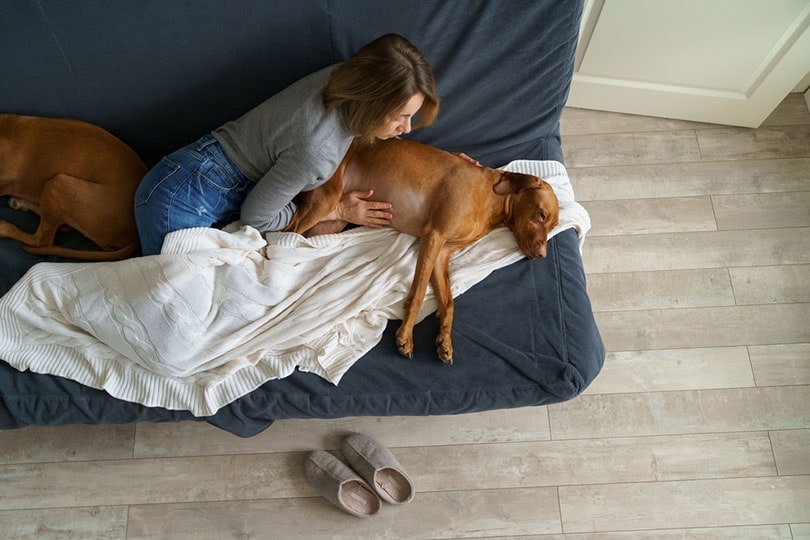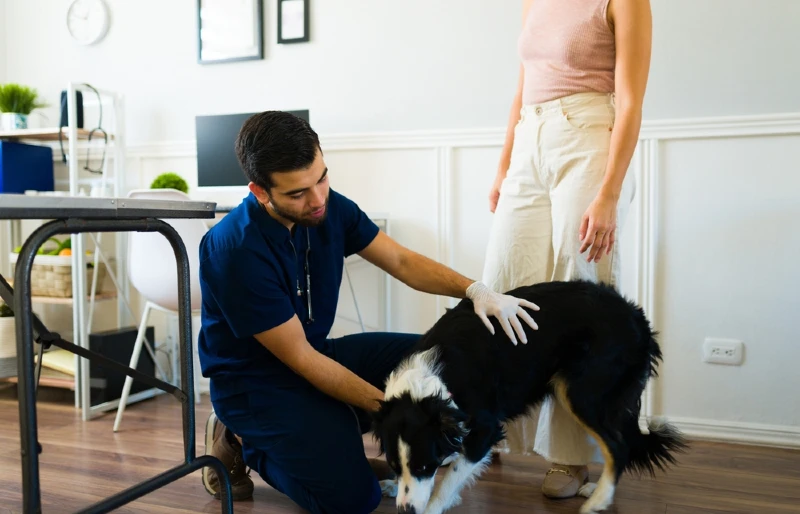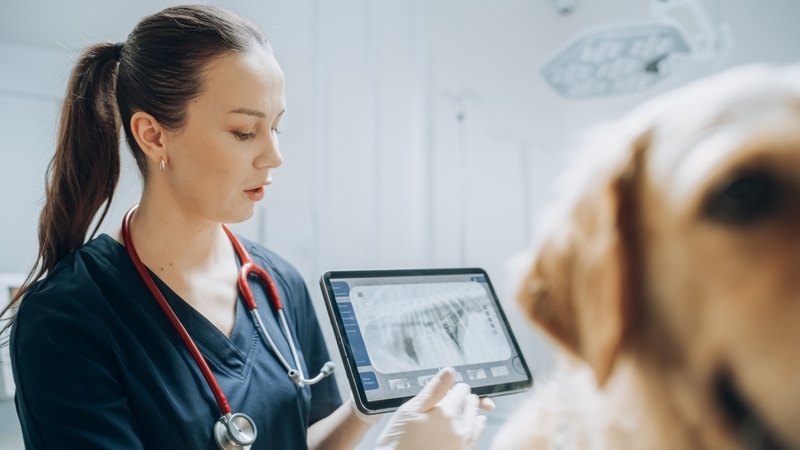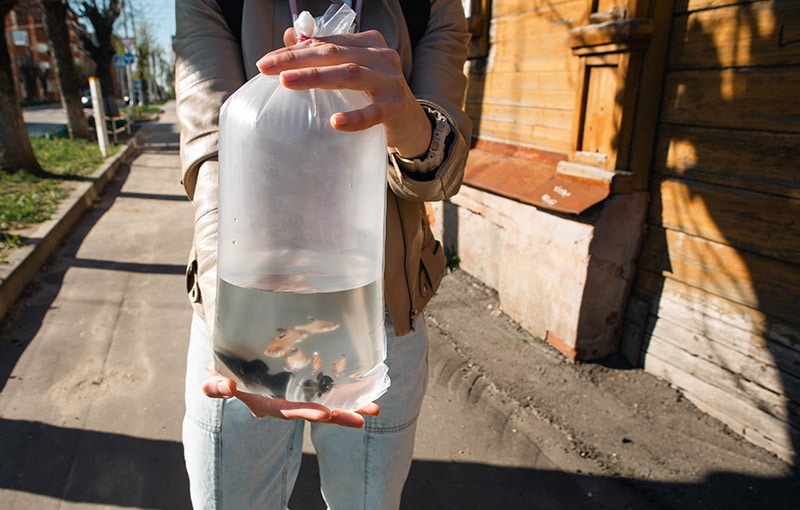My Dog Ate Leather: What Should I Do Next? (Vet Answer)

Updated on

Click to Skip Ahead
Leather itself isn’t actually dangerous to dogs, however, there are some serious issues that can arise from eating it. It is important owners are aware of the risks and what to do in this situation.
The biggest risk is the potential for intestinal obstruction. A dog’s digestive system is not capable of breaking down pieces of leather, therefore, as it travels down the gastrointestinal tract, it could easily get stuck along the way. If your dog has eaten leather, it is best to contact your vet immediately to get them examined. It is always better to be safe than sorry!
What Are the Dangers of Eating Leather?
If your dog has eaten a small amount of leather, and if they have chewed it up into small pieces, it should pass through their digestive tract without any issues. Some dogs will simply chew the leather and not actually swallow it, this may have you thinking that they are in danger and there may be a lot of mess to clean but the reality is that they haven’t actually swallowed any.
Leather is not toxic to dogs, the issue with leather is the fact it is indigestible, and that it can be tough. As well as this, some leather materials can be coated with toxic substances or cleaning products that may harm your dog. Leather products may also contain metal—for example, leather shoes.
Impaction and blockage occurring in the gastrointestinal tract can lead to parts of the gut becoming devitalized and dying or even perforation of the gut. Both of these can be fatal for your dog.

My Dog Ate Leather, What Do I Do Now?
1. Remove the Leather
Take your dog away from the source of the leather and clean up any mess left. If it is safe to do so, and if your dog will allow you without getting bitten, remove any pieces of leather from their mouth.
2. Get in Contact with Your Vet
Keep your dog with you and call your vet as soon as possible. Your vet will need to ask you some questions. Stay as calm as you can and be prepared to answer the following:
- When did your dog eat/chew the leather?
- What sort of leather product was it?
- Were there any cleaning products or other substances coating the leather?
- Was there any metal parts or other material attached to the leather?
- Does it look like they ingested leather, or has it just been chewed?
- How big is your dog?
- What breed is your dog?
- How much does your dog weigh?
- Does your dog have any underlying health issues?
- Is your dog on any treatment for anything currently?
3. Follow Your Vet’s Instructions
Your vet is likely to want to examine your dog. Take your vet to the hospital as soon as possible if this is the case. Bring any remaining bits of chewed leather if you can for your vet to examine.

4. Do Not Attempt to Treat Your Dog at Home
Some owners may decide to just monitor their dogs at home after they have eaten leather, hoping that the leather will pass through their bodies and be expelled with their feces. This may be an acceptable option if a large dog has only eaten a small amount. However, there is no way of knowing this will happen and adopting a “wait-and-see approach” may be dangerous.
Some owners will try to make their dogs sick at home. This is not recommended in any circumstances. At-home methods for induction of vomiting are very unreliable and often cause more damage than good. It is always best to leave this to the professionals as they may need to rule out other health issues and treat any underlying disease.
5. Keep a Close Eye on Your Dog
Do not let your dog wander off or go into another room. Depending on how much leather they have ingested and what it was coated or cleaned with, they could start to show signs of illness at any time. You will not be able to gauge the severity of the situation if they are not with you. If they run off this can also delay them getting to the vet and receiving the medical attention they require.
What Will Your Vet Do?
Your vet is very likely to request that you bring your dog in to have them checked out. They will triage your dog to see if they need any emergency treatment. If they are stable, they can begin to carry out less urgent diagnostic tests. If they are deemed to be low risk, your vet is likely to advise you to monitor your dog at home.
If your dog is deemed to be high risk, they will be admitted and receive further treatment and tests. Your vet will take blood and urine samples for analysis, they will perform X-rays and possibly ultrasound scans to assess if there is an intestinal blockage.
If there is a blockage identified, often surgery is required under general anesthesia to remove the leather and any other bits attached to the leather as well.
Your vet will assess the rest of the gastrointestinal tract for damage and carry out any necessary repairs. Be prepared that your dog will need to stay in the hospital for a few days if they need to have an operation. Your dog is likely to need intravenous fluid therapy, pain relief, and antibiotics for a period after the operation.

Conclusion
Leather is found in many different products all over our homes. Dogs with a tendency to chew things often enjoy the texture and smell of leather as it is an animal product. If your dog has eaten leather, there is a risk that the leather will cause a gastrointestinal blockage. This is a medical emergency and can have fatal consequences. There may also be chemicals or cleaning products coating the leather that can be toxic to your dog. If you think your dog may have eaten any leather, contact your vet immediately for help and guidance.
Featured Image Credit: Lisa Hourin, Shutterstock












